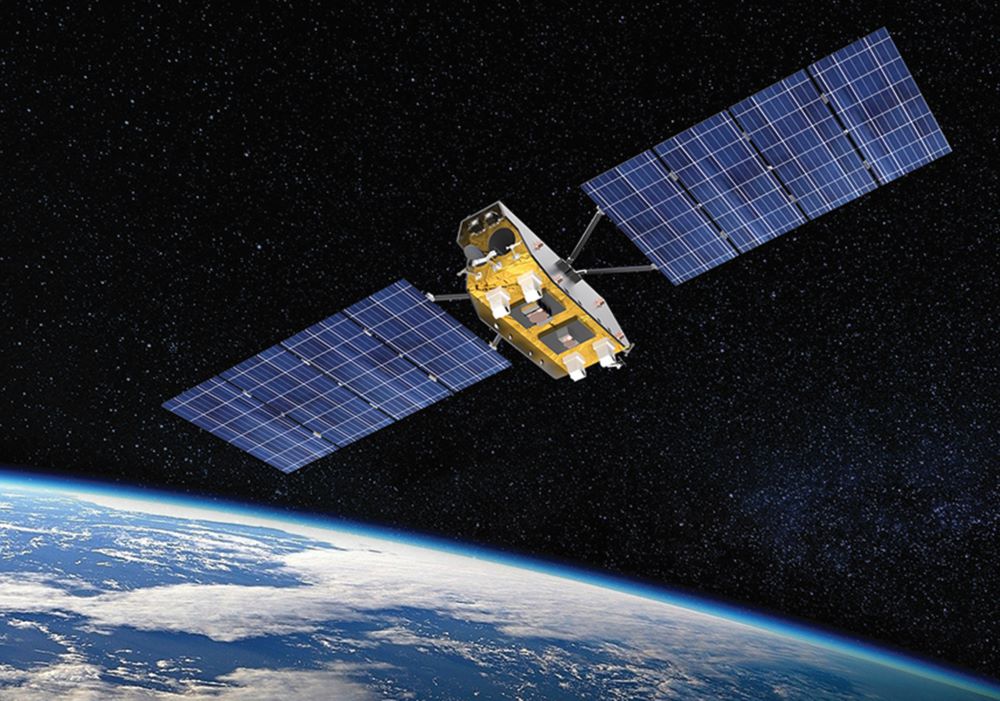Products You May Like
TAMPA, Fla. — Canada is prepared to invest 50% more than initially planned to help flagship geostationary operator Telesat fund its Lightspeed low Earth orbit (LEO) broadband constellation.
Telesat said it received a letter from the Canadian government last week that agreed terms for a loan worth 2.14 billion Canadian dollars ($1.6 billion) for Lightspeed, nearly half the 198-satellite network’s $3.5 billion budget.
The terms also include an exchange of warrants enabling the government to buy 10% of Lightspeed for $300 million, valuing the constellation at $3 billion ahead of satellite deployments slated to get underway in 2026 via SpaceX.
The deal supersedes a provisional 1.44 billion Canadian dollar investment agreement reached in August 2021, which consisted of a 790 million Canadian dollar loan and 650 million Canadian dollars in preferred equity upfront.
The new loan would carry a floating interest rate of 4.75% above the Canadian Overnight Repo Rate Average (CORRA), compared with a rate fixed at 2% a year under the earlier plan. Telesat would also have 15 years to pay off the loan, compared with 20 years before.
Telesat said April 1 the proposed investment remains subject to various conditions, including definitive documentation, and whether the government is satisfied with other financing sources in the works for the satellites Canada-based MDA is building.
The agreement comes after Telesat switched manufacturers in August following production delays at Europe’s Thales Alenia Space.
The satellites from MDA are 75% smaller at 750 kilograms but promise the same performance, helping the operator shave $2 billion off Lightspeed’s original budget.
Telesat CEO Dan Goldberg said April 1 that the government investment will also help the company save $750 million in borrowing costs.
Stephen Hampton, Telesat’s senior director for government affairs and public policy, said export credit agencies (ECAs) in Canada and France were previously going to loan the company about $3 billion in total for Lightspeed, alongside Canadian federal and provincial financing commitments.
The increased Canadian federal support essentially replaces the investment needed from Canada’s ECA, while the constellation’s lower cost means Telesat does not need financing from France’s ECA.
“The [government of Canada] is willing to do this in part because, by working with MDA, we’re making a much more significant investment in Canada and having so much more of a positive impact on the Canadian space ecosystem versus the prior approach we were taking,” Hampton told SpaceNews via email.
He said the operator still plans to fund around $1.6 billion of Lightspeed’s costs via Telesat equity, adding there are active discussions with provincial government partners about investing in the constellation.
Telesat recently reported 704 million Canadian dollars in revenue for 2023, down 9% year-on-year when adjusted for changes in foreign exchange rates.
In a March 28 earnings call with investors, Goldberg pointed to an industry-wide decline in satellite TV that he expects will continue to drag down revenues in 2024.
He said Telesat is also bracing for more competition in the enterprise connectivity market, particularly in maritime, from SpaceX’s Starlink LEO broadband constellation.
“The biggest driver of lost revenue in the enterprise segment is the migration of customer requirements from [geostationary orbit] to LEO — namely to Starlink as they are the first in the market,” Goldberg said.
“Enterprise customers want affordable, low-latency broadband connectivity, which we’ve been talking about for quite some time. The transition to LEO is happening a little faster than even we expected. Although we don’t love seeing Starlink cannibalize some of our GEO customer requirements, it’s a strong validation of the market embrace of LEO and the compelling path that we’re on with Telesat Lightspeed.”
Telesat expects to report between 545 million and 565 million Canadian dollars in revenue for 2024.
Adjusted EBITDA — or earnings before interest, taxes, depreciation, and amortization — came in at 534 million Canadian dollars for 2023, down 8% year-on-year.
As Lightspeed expenses ramp up this year, Telesat is projecting between 340 million and 360 million Canadian dollars in adjusted EBITDA for 2024.
